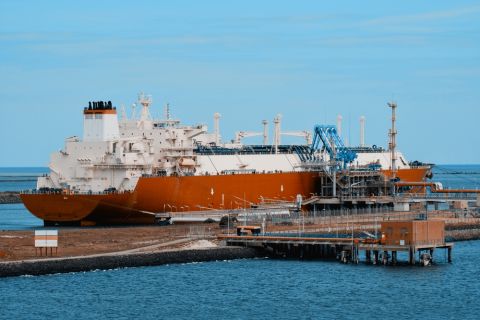Second-quarter results may reveal which of the largest public oil companies would like to boost their production before year-end. According to Petroleum Finance Week's most recent quarterly survey, ExxonMobil, ChevronTexaco, Anadarko, Phillips, Apache and Unocal could use some help. Each reported less production in the quarter than in second-quarter 2001. (For all the numbers, see "Lower prices contributed to reduced producer results" in NewsWell in this issue.) ExxonMobil's oil production grew in Angola, Venezuela, Malaysia and Canada, and gas production grew slightly. Yet, OPEC-quota restrictions in some countries and field decline, particularly gas fields in the U.S., proved to be greater pressure on production results than the gains. The major reported 0.8% less production during the quarter than a year earlier. Shell was spared any embarrassment this past quarter. Its acquisition of Enterprise Oil helped give it a 7.7% increase in production-a whopping movement for such a large oil and the second-largest during the second quarter among the majors PFW surveyed. Otherwise, Shell's production would have grown 1%-or approximately 38,000 barrels for the 3.8-million-barrel-per-day producer. Among the majors, BP ranked third with a 5.6% increase-none of it due to a sizeable acquisition. The production gains came from the start-up of King Field in the Gulf of Mexico and an increased interest in the Russian oil company Sidanco. More is to come in the second half, the company reports, when production commences from the King's Peak, Horn Mountain and Princess fields in the Gulf of Mexico. Meanwhile, Shell reported nothing as exciting in the near future. Long-term it will benefit from the Kashagan discovery, in which it has a 16.7% interest, in Kazakhstan. Preliminary estimates are of 7- to 9 billion barrels of producible reserves. Phillips Petroleum's production loss of 0.3% will be fixed this month in its merger with Conoco, which reported a 24.7% production increase primarily due to new and/or improved operations in Indonesia, Norway, Venezuela and Canada, including the acquisition of Gulf Canada. Conoco's production growth is despite divestments of 22,000 BOE per day. Upon combining with Phillips, the company will have production of 1.64 million barrels per day, a 96% increase. To grow its output 25% again, it would need to add approximately 400,000 BOE per day, which is approximately the second-quarter daily output of Marathon Oil and Amerada Hess, each. The 25% additional production it reported this past quarter is approximately the daily output of Murphy Oil. As for Marathon, it spent more than $1.3 billion to boost its production 3%. Excluding exploration success and acquisitions, production is expected to grow from 420,000 BOE per day this year to about 430,000 to 435,000 in 2004. Among the independents, Anadarko Petroleum was hurt by declines in central Texas and Gulf of Mexico gas production. Meanwhile, the company is looking to reduce debt while increasing capex. Its current plan is to spend $200 million more than first budgeted this year, particularly in Algeria, and sell $320 million in assets in the U.S. and Canada. Already sold are some South Texas and South Louisiana assets for $60 million. On the table are some heavy-oil assets in eastern Alberta for $160 million. To come are $100 million worth of properties. The locations were not disclosed. For a summary of mergers, acquisitions and divestitures during the first-half, involving U.S. companies and assets, see "First-Half U.S. A&D" in this issue. -Nissa Darbonne, Managing Editor
Recommended Reading
Hirs: LNG Plan is a Global Fail
2024-03-13 - Only by expanding U.S. LNG output can we provide the certainty that customers require to build new gas power plants, says Ed Hirs.
US EPA Expected to Drop Hydrogen from Power Plant Rule, Sources Say
2024-04-22 - The move reflects skepticism within the U.S. government that the technology will develop quickly enough to become a significant tool to decarbonize the electricity industry.
Energy Transition in Motion (Week of March 22, 2024)
2024-03-22 - Here is a look at some of this week’s renewable energy news, including a new modeling tool for superhot rock.
US Interior Department Releases Offshore Wind Lease Schedule
2024-04-24 - The U.S. Interior Department’s schedule includes up to a dozen lease sales through 2028 for offshore wind, compared to three for oil and gas lease sales through 2029.
Exclusive: The Politics, Realities and Benefits of Natural Gas
2024-04-19 - Replacing just 5% of coal-fired power plants with U.S. LNG — even at average methane and greenhouse-gas emissions intensity — could reduce energy sector emissions by 30% globally, says Chris Treanor, PAGE Coalition executive director.




